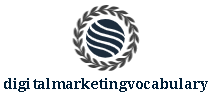Smart Bidding: Maximizing Online Advertising Performance
Smart Bidding is revolutionizing the way we approach digital marketing strategies. In the fast-paced world of advertising, automation has become a powerful ally in optimizing campaigns and achieving precise results. Smart Bidding leverages machine learning to automate bid strategies, making it easier for us to achieve our marketing goals efficiently.
As digital marketers, optimizing ad spend while maximizing return is a constant challenge. Smart Bidding adapts to real-time factors, such as device type, location, and time of day, empowering us to tailor our bids to the context of each auction. With its advanced algorithms, we can focus more on creative strategies and less on manual adjustments.
By integrating Smart Bidding into our campaigns, we can refine our approaches based on meaningful data insights. This allows us to make informed decisions and enhance our position in the competitive digital marketing landscape. With Smart Bidding, the opportunities to improve campaign performance are vast and accessible.
Smart Bidding Fundamentals
Smart Bidding is an automated bidding system offered by Google Ads that leverages machine learning to optimize for conversions across campaigns. We explore its core algorithms, strategy types, and the distinct advantages it provides advertisers.
What Is Smart Bidding?
Smart Bidding is an auction-time bidding tool that adjusts ad bids based on the likelihood of a conversion. It automates the process of setting bids in real-time by using extensive data signals to maximize campaign performance. Advertisers benefit through optimized bids tailored to each auction, improving conversion results while saving time otherwise spent on manual bid adjustments. This tool considers various contextual signals, including device, location, and time of day, ensuring bid precision for desired outcomes.
Core Algorithms and Machine Learning
The core algorithms behind Smart Bidding operate on Google's advanced machine learning frameworks. They analyze broad data sets to understand user behavior and make predictive models for bid adjustments. These algorithms are fueled by historical performance data, aiding in making informed tweaking decisions. Machine learning enables the system to continuously learn and refine from vast amounts of data, accommodating shifts in user behavior patterns with agility. This adaptability ensures that bidding strategies remain effective and relevant in dynamic market conditions.
Types of Smart Bidding Strategies
Several types of Smart Bidding strategies exist to suit different marketing goals. Target CPA (Cost-Per-Acquisition) aims to get as many conversions as possible at a fixed target CPA. Target ROAS (Return on Ad Spend) focuses on maximizing revenue based on spending levels. Maximize Conversions drives the highest possible number of conversions within a set budget, while Maximize Conversion Value seeks the greatest return in conversion value. Each strategy is designed to meet specific aims, providing choices based on campaign objectives.
Benefits of Smart Bidding
Smart Bidding offers several advantages. It saves time, reducing the manual work required for bid management. Automated bid adjustments facilitate higher conversion rates and better ROI by leveraging data-driven insights. Smart Bidding also enhances performance predictability, letting us anticipate ad spend outcomes with more accuracy. By utilizing extensive data signals and refined algorithms, it caters to dynamic market environments, maintaining efficiency and effectiveness.
Implementing Smart Bidding
Smart Bidding leverages machine learning to optimize bidding strategies effectively. We will guide you through the setup process, delve into best practices, advise on monitoring and adjustments, and discuss integration with analytics tools for optimal performance.
Setting Up Smart Bidding
To start with Smart Bidding, we first need to define our campaign goals, such as target CPA or ROAS. Aligning our objectives with the appropriate Smart Bidding strategy is crucial for effective implementation.
Next, we configure conversion tracking. Accurate tracking ensures Smart Bidding algorithms have the necessary data to make informed decisions. Setting this up involves placing tracking codes on our website to capture valuable conversion data.
After this, we select our desired Smart Bidding strategy in the advertising platform. Options include Target CPA, Target ROAS, Maximize Conversions, and more.
Best Practices for Performance
Successful Smart Bidding requires a combination of strategy selection and ongoing testing. We must regularly experiment with different bid strategies to discover what works best for our campaigns.
A consistent testing framework allows us to isolate variables and make data-driven decisions. Monitoring key metrics, such as conversion rates and cost per acquisition, helps us assess performance effectively.
Additionally, patience is necessary when evaluating results. Bidding algorithms require time to adjust, and we often see improved performance after an initial learning period.
Monitoring and Adjusting Bids
Continuous monitoring of bidding performance is essential. By tracking data over time, we gain insights into seasonal trends, user behavior changes, and external factors affecting our campaigns.
Adjustments may be needed based on this monitoring. Lower-performing keywords may require bid reductions, while high-converting terms might benefit from increased investment.
Regularly reviewing reports allows us to refine our approach. We must stay vigilant to ensure our bids align with our overall marketing goals and adapt as needed.
Integrating with Analytics and Data Reporting
For maximum effectiveness, combining Smart Bidding with robust analytics tools is vital. Integration with platforms such as Google Analytics provides deeper insights into user activity and helps us in making more informed decisions.
Access to detailed data allows us to assess conversion paths, identify high-value segments, and tailor our bidding strategy accordingly. We can better understand the ROI of our campaigns through comprehensive reporting.
By leveraging analytics, we can fine-tune our Smart Bidding approach. This ensures our decisions are guided by accurate, up-to-date information and helps maintain our competitive edge in the digital marketing landscape.

 EN
EN DK
DK SR
SR DE
DE FI
FI